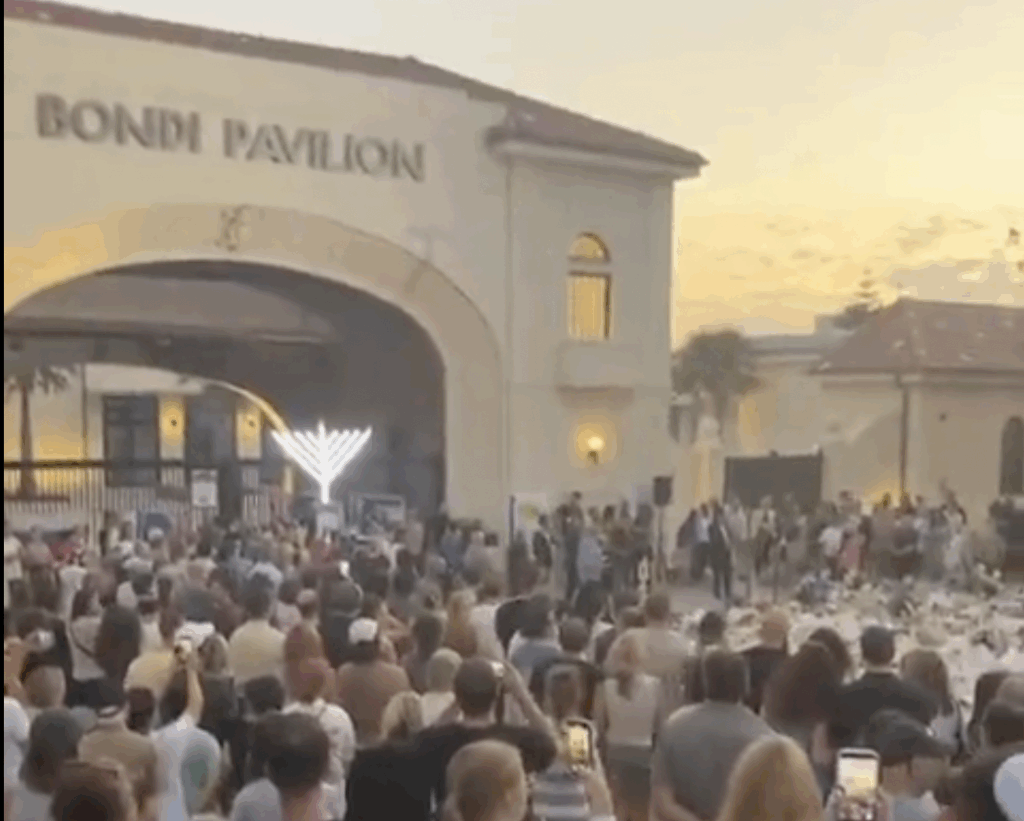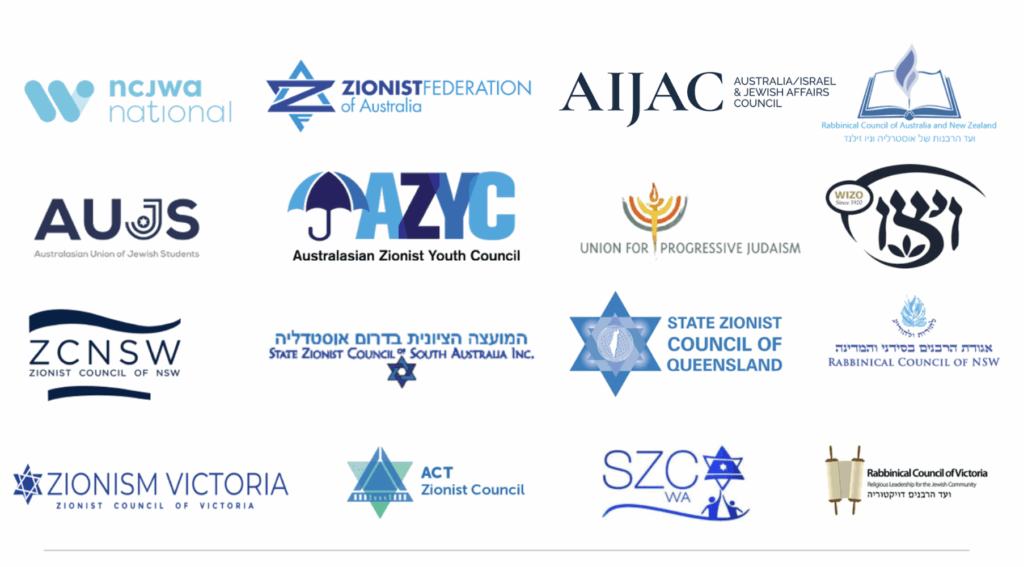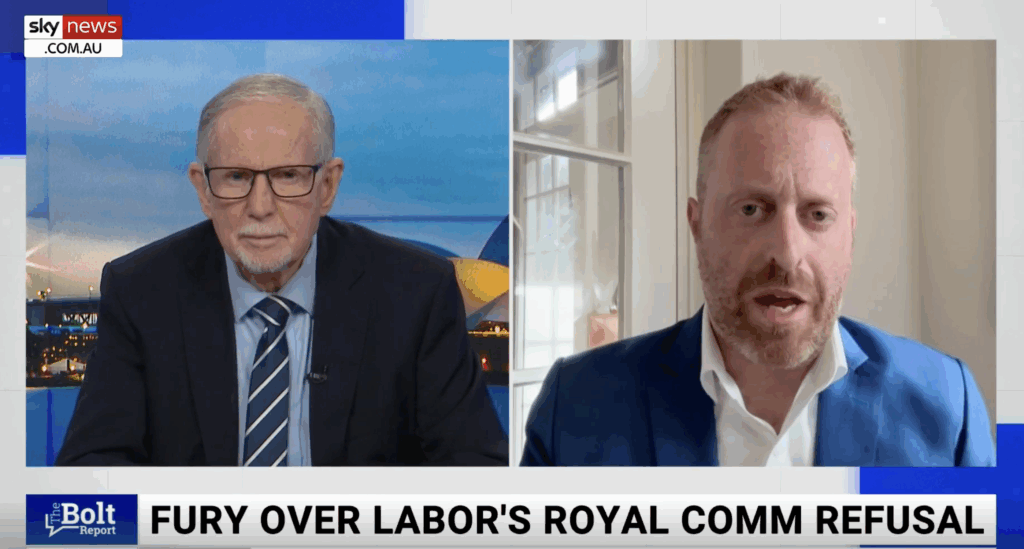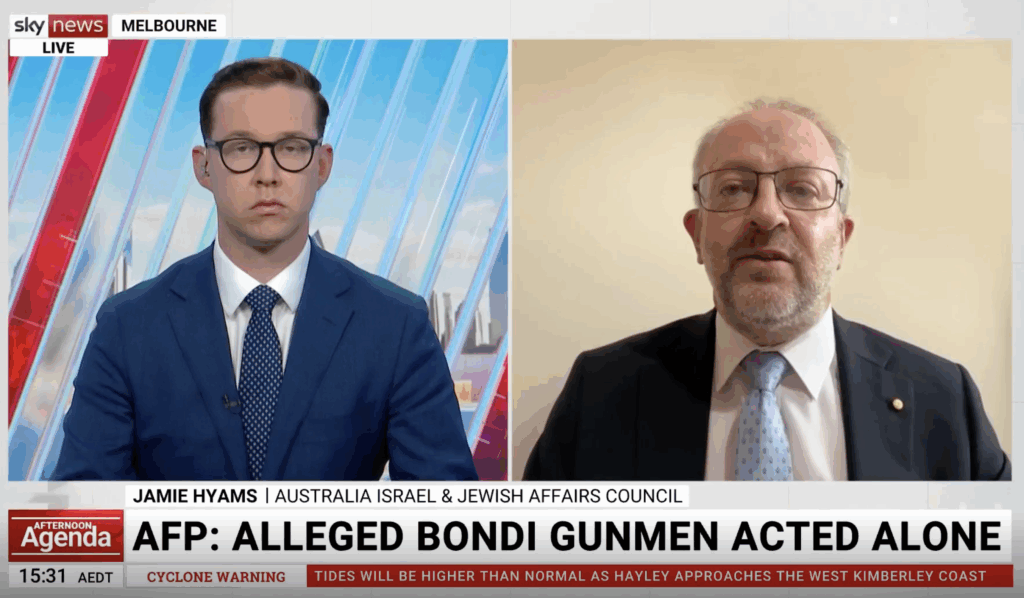UPDATES
Israeli policy responses to the terror wave
December 4, 2015
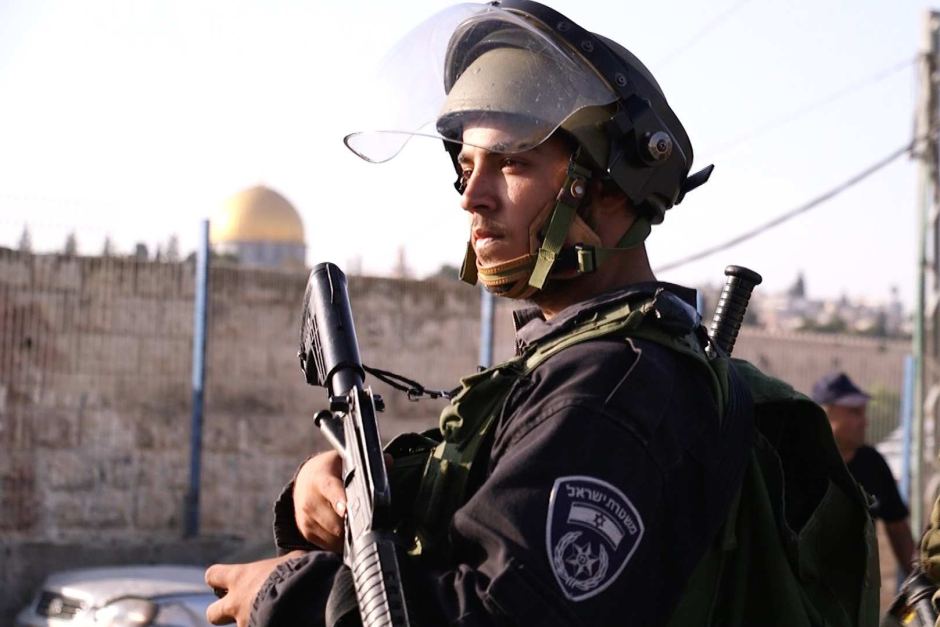
Update from AIJAC
Dec. 4, 2015
Number 12/15 #01
The wave of stabbing attacks on Israelis continues, with attacks virtually every day – though it seems to be getting less and less media coverage. (There was a shooting attack yesterday, three significant attacks on Tuesday, and two more on Sunday. A useful spreadsheet of all attacks this year – including many never reported – is here.) This Update deals with some of Israel’s efforts to respond – as well as why this violence continues.
The first comment comes from distinguished former Israeli General Yaakov Amidror, who argues that those arguing for massive military action or legislation targeting the Israeli Arab community are supporting measures likely to do more harm than good. He says, frustrating as it is, there is little more that can be done militarily about the wave of unorganised lone wolf attacks using weapons of opportunity – until it burns itself out in the face of its self-evident uselessness, bringing grief primarily to the perpetrators and their families. He also says that the primary cause of the attacks is Palestinian Authority (PA) incitement “promoting murder as a ‘hobby’ among the Palestinians.” For his complete argument, CLICK HERE.
Next up, Israeli columnist Ben-Dror Yemini comments on one specific Israeli response to the terror wave – the banning of the Islamist Israeli Arab group the “northern branch of the Islamic movement”, which has long taken the lead in fomenting outrage about supposed Israeli attempts to take over the Al-Aqsa mosque in Jerusalem (More on that ban is here – a report on the groups incitement appeared in the November edition of the AIR). While Yemini says that ban is justified, he urges Israel to simultaneously step up efforts to improve equality and integration for its Arab minority, citing many loyal Arab citizens he knows. He argues, “we must not ignore the inciters, and we must not ignore the sane, enlightened stream which fights racism.” For this intelligent and heartfelt comment, CLICK HERE.
Finally, Israeli intelligence analyst Jonathan Halevi magnifies Amidror’s point that the PA leadership is playing a key role in inciting the current terror wave. He notes that this is not new, involves a green light passed down to field operatives of the Palestinian organisations, and that the PA offers a whole range of financial and social support for those arrested, wounded or harmed in the course of anti-Israeli terror activity, as well as their families. He then cites statements from members of the ruling Fatah party during a joint Hamas-Fatah “Conference to Support the intifada” which openly called for using violence to seek Israel’s destruction. For all the details of Halevi’s analysis, CLICK HERE.
Readers may also be interested in:
- Shmuel Rosner argues the current wave of violence is getting the Palestinians nowhere – but those who say the answer is another Israeli effort to make peace are being naive and foolish, given the lack of suitable conditions.
- A piece on efforts to curtail the use of social media as a key vehicle of the incitement which is leading to the current wave of attacks.
- Palestinian scholar Bassam Tawil takes on the education that turns Palestinian children into terrorists. Earlier, he had a comment on the counter-productive nature of what the Palestinian leadership are doing in the name of “saving” Al-Aqsa and another pointing out that contrary to PA claims, the Palestinians carrying out these attacks are not seeking a two-state resolution, but Israel’s destruction.
- PA figures make it clear they support terrorism against Israelis – but insist that the exact type of terrorism at any time should be calibrated to minimise international condemnation. Earlier, PA President Abbas described the current wave of stabbing attacks as a “popular peaceful uprising.”
- A critique of coverage of the recent Palestinian violence in the New York Times – some of which also applies to elements of the Australian media.
- Veteran American Mideast mediator Aaron David Miller discusses a point recently raised by Henry Kissinger – does the world really want or need a ” potentially weak, dysfunctional Arab state in Palestine” right now – which is likely to be the result if a Palestinian state were created right now?
- A report on Israel’s role in the climate change summit in Paris – where Israeli PM Netanyahu met PA President Abbas for a quick handshake for the first time in years.
- Meanwhile, Herb Keinon uses Netanyahu’s experience in Paris to debunk claims Israel is becoming diplomatically isolated. He later commented on growing Israeli trade with Asia, following the visit to Israel of Vietnamese Deputy Prime Minister Hoang Trung Hai.
- Israel gets a diplomatic office in Abu Dhabi accredited to an international agency, in a diplomatic breakthrough of sorts. Analysis of the significant of this is here.
- Plus, in another diplomatic breakthrough of sorts, the Coptic Pope, based in Egypt, reverses a long-standing Coptic policy and visits Jerusalem.
- An excellent story on Israel’s world-leading success with water conservation and technologies, making it a “water superpower.”
- Isi Leibler urges that political and Jewish community leaders should not let compassion for refugees overwhelm common sense.
- Some examples from the many stories and comments now appearing at AIJAC’s daily “Fresh AIR” blog:
- Or Avi Guy offers a detailed report and analysis of the incitement that continues to emerge from official and unofficial Palestinian sources amidst the current violence.
- Sharyn Mittelman on the visit of the Israeli Chief Scientist to Australia and the possibilities for cooperation in innovation and hi-tech this opens up.
- Sharyn also had a post on the implications of the election of Argentina’s new President, Mauricio Macri, who says he will cancel a controversial deal for his country and Iran to jointly investigate the 1994 AMIA bombing in Buenos Aires, which was almost certainly planned by the Iranian regime.
Cooler heads must prevail
Maj. Gen. (ret.) Yaakov Amidror
Israel Hayom, Nov. 27
The security situation is complex. Outlawing the Islamic Movement’s Northern Branch may have been unavoidable, but the surge in violence cannot be used as an excuse to promote legislation targeting Israeli Arabs or infringing on their rights, directly or indirectly. Such measures will do more harm than good, especially in the long run.
Tempers are running high these days, but if anything this is when we should see the glass as half full: Israel is home to 1.7 million Arab citizens, and we should always keep in mind the astonishing fact that only a handful of them have taken part in recent incidents. After two months of rising terrorism, Israeli Arabs have remained removed from the cycle of violence. Some may sympathize with the terrorists, some may subscribe to the incitement spread by the Islamic Movement’s Northern Branch, but they do not take part in the murder of Israelis.
We must examine what can be done to build up this positive trend of restraint by Israeli Arabs.
The situation is very frustrating. Every terrorist attack echoes the same question with growing urgency: What can be done to quell terror and restore the public’s sense of safety?
We see no shortage of grandiose statements on this subject, along the lines of “launch a massive military campaign” and “seize Judea and Samaria.” These are nothing but empty words. There is no need for a massive military campaign, as Operation Defensive Shield in 2002 established the IDF’s control over Judea and Samaria, and Israeli forces are free to operate anywhere in the area. If there is intelligence of a weapons’ cache in the heart of Nablus, for example, the IDF can deploy troops within a day. The same goes for executing demolition orders on terrorists’ homes. And soldiers pursuing a suspect can chase him wherever they must, even into a Palestinian hospital.
The suggestion of a door-to-door search for suspects in Hebron, home to the majority of terrorists involved in the recent knifing and ramming attacks, is also futile. What are the soldiers supposed to look for — kitchen knives? Over 90% of the attacks were carried out using weapons of opportunity, from screwdrivers to axes. Only a handful of attacks involved firearms.
The IDF is already free to act on any intelligence or suspicion as needed, and the defense establishment clearly thinks that surrounding Hebron is a waste of resources, and that it would only aggravate friction with civilians who are, for the most part, innocent.
Tense times like these breed a tendency to infringe on the rights of the minority from which the terrorists emerge. We have seen how even the leaders of the most enlightened countries — the same ones who preach to Israel about tolerance and leniency — sideline all semblances of tolerance when they are hit close to home.
Israel should refrain from imposing harsh and unnecessary measures on the Palestinians, such as revoking work permits from Palestinians across Judea and Samaria. This measure would affect the livelihoods of thousands of families, when so far it is only one terrorist who abused his work permit to carry out an attack.
Exercising such measures could result in increasing the number of Palestinians who, feeling they have nothing to lose, might turn to terrorism. Harsh punishments should be imposed wisely if they are to generate deterrence.
The truth should also be voiced clearly. Little can be done to prevent lone terrorists from carrying out their plans, especially when their motives are no longer clear. Many of the attacks recently have been “atmosphere attacks,” resulting from a killing “trend” fueled by the Palestinian Authority’s incitement. The PA seems to be the main component in promoting murder as a “hobby” among the Palestinians, but most attacks have not been directed by a known terrorist group.
While swift action and the better screening of suspects are vital to fight the violence, these two measures alone cannot quash it. Acts of terror are growing in popularity on a global scale, and the Palestinian trend is inspired by international events.
The wave of terrorism is likely to continue until it proves itself useless; something that brings only grief to the perpetrators and their families. This is why Israel cannot offer any gestures to the Palestinians. We must make it clear that this prolonged violence will yield nothing.
There is also a need to avoid unnecessary panic, and rhetoric suggesting these attacks pose an “existential threat” to Israel is oblivious to reality and sidelines history in favor of hysteria.
No one can dispute that recent weeks have been stressful for the Israeli public, especially in Judea and Samaria, where residents come in greater daily contact with their Palestinian neighbors, which in some cases makes it easier for terrorists to carry out their vile plans. But the situation is far from posing an “existential threat.” Israel has weathered longer and harsher waves of terrorism, and they did not pose such a threat. Neither did Israel’s wars.
While there is no doubt that Israel is facing a difficult situation, the nation will continue to thrive. I believe the economy will grow, as will the number of Israelis living in Judea and Samaria and the number of Jews immigrating to Israel. The surge in violence does not pose an “existential threat.” But it does call for keeping things in proportion.
Back to Top
————————————————————————
Loyal to their people and to their state
Outlawing the Islamic Movement is an opportunity, as it requires a clear policy towards the loyal majority of Israeli Arabs who oppose terror
Ben-Dror Yemini
Ynet.com, Nov. 25, 2015
These words are dedicated to G. from the village of ‘Ara, to H. from Jaffa, to Dr. S. from the Upper Galilee, to R. from Nazareth and to other friends from the Arab “sector.” Occasionally they speak up; occasionally they keep quiet. Sometimes we agree, and sometimes we yell at each other. That’s the way it is among friends.
There is one more thing I know: I can count on each and every one of them blindly, even after not talking to each other for months. They are Palestinian and they are Israeli, and they belong to a minority which wants to be and is trying to be – and sometimes succeeding – part of the Israeli existence.
They represent an important stream among Israel’s Arab population. According to the latest survey conducted by Prof. Sammy Smooha, they make up 42 percent of Arabs which recognize Israel as a state with a Jewish majority. According to previous surveys, more than 50 percent of young Israeli Arabs are in favor of volunteering for national service. They are trying to be loyal both to their people and to their state, and it’s not easy. With people like Azmi Bishara, Hanin Zoabi and Raed Salah in the background, and when Father Gabriel Naddaf suffers from violence for supporting IDF enlistment, many prefer to keep a low profile.
They belong to quite a large group of people who have gained personal and professional success. They have done it thanks to the state and despite the hostility and discrimination from their surroundings and sometimes from the state as well.
When one of them, or those who are like them, voices his moderate views, he is ridiculed not only by the screamers in his own sector, but also by the screamers of the Left in the Jewish sector, who want their Arab angry and full of hatred against the apartheid state they paint in their wild imagination.
S., a hospital department head, and G., a successful businessman who has a company with which companies in central Israel prefer to work because it’s better, despise such Jews. In their eyes, they are no different from the fascists in the Right, as both encourage hatred and hostility.
The apartheid claims are nonsense and a lie, and the Adalah organization’s list of “apartheid laws,” which stars in anti-Israel propaganda, is pure deception. There isn’t a single law there which smells of apartheid.
For each person who supports Hamas or the Islamic State, there are hundreds who oppose terror. They won’t become Zionist. The disputes will remain. But outlawing the Islamic Movement is actually an opportunity, because it requires a clear policy towards the loyal majority. Only racists exempt the Arabs from being responsible for their situation. But the ball, we must not forget, is also in our court.
Nonetheless, Israel is far from being perfect. Not all of the arguments made by Israel’s Arabs are groundless. We should do more and we must do more, much more, for equality and integration. Not that it will change anything as far as Zoabi or Salah are concerned. They will keep spreading poison. But we must not despair because of the inciters. It will be their victory.
So why do they vote for a hostile party, once Balad and now the Joint List? Well, not everyone who votes for these parties is necessarily anti-Israel. This vote is the result of one’s identity. Not every Jew who votes Likud or Bayit Yehudi hates Arabs. And in any event, about a third of the Right’s voters would have supported a far-reaching compromise in exchange for true peace, which is slightly hard to achieve. So the Arab vote is largely a mirror image of the Jewish vote.
The “other” Arabs are not the majority, but they are not a small minority either. They care about the language and attitude of the Jewish majority. One of them wrote to me, after I wrote about the Grand Mufti of Jerusalem during the Holocaust, that those days in Paris and in Northern African countries there were Muslim righteous among the nations who were busy saving Jews, and these days there are Muslim intellectuals who write against anti-Semitism in a blatant manner. He is right. We must not ignore the inciters, and we must not ignore the sane, enlightened stream which fights racism.
While the situation of Israel’s Arabs is relatively better than the situation of Muslims in Europe, it’s not enough. Israel must do more, much more, to increase equality and participation.
Back to Top
————————————————————————
The Spontaneous Intifada Is Orchestrated by the Palestinian Leadership
Jerusalem Centre for Public Affairs, Nov. 29, 2015
The Palestinian leadership is attempting to portray the current intifada as a kind of popular, spontaneous struggle that expresses the populations despair over the political situation. In reality, it is an intifada supported and directed by the Palestinian leadership in Ramallah (the Palestinian Authority-PLO-Fatah) and Gaza (Hamas).
It is a Palestinian strategy that has been seen before. The green light for violent agitation and terror attacks is given by the Palestinian leadership, and the message is translated into actions by field operatives of the Palestinian organizations or by Palestinian residents. The Palestinian leadership also guarantees a network of social and financial support to any Palestinian resident who is arrested, wounded or harmed in the course of anti-Israeli terror activity, including monthly stipends for the individual and his or her family.
The Palestinian intifada has clear goals. The Palestinian Authority, led by Mahmoud Abbas (Abu Mazen), wants to use it as a tool to achieve its political objectives, which include compelling Israel to withdraw from Judea, Samaria, and east Jerusalem under international pressure.
Abbas Zaki, a member of the Fatah Central Committee, took part in the General Arab Conference to Support the intifada that was held in Beirut on November 20, 2015. In his speech there he asserted that the Palestinian revolution will only end with the collapse of the [Zionist] entity.
Hamas Political Bureau member Mousa Abu Marzook, in his speech at the gathering, said Palestinian unity was a key factor in the success of the intifada, which he described as a very effective instrument for achieving political objectives.
Abu Marzook pointed out that the first intifada (which erupted in December 1987) led to the Oslo accords and the establishment of the Palestinian Authority. The second intifada in 2000 precipitated Israels withdrawal from Gaza and building of the security fence, which in his view, despite its drawbacks, symbolizes the end of the Zionist endeavor.
The goals of the current intifada (the Al-Quds intifada or Knives intifada), said Abu Marzook, are: forcing an Israeli withdrawal from Judea, Samaria, and Gaza, securing the freedom of all the Palestinian security prisoners, and lifting the blockade of Gaza.
Abu Marzook asserted that the intifadas effectiveness depends on its continuation and expanding it in all spheres with all the Palestinian organizations participating. He urged the establishment of support committees for all aspects of the intifada.
The closing declaration of the Conference to Support the intifada, in which senior representatives of Fatah, which Abbas heads, took part, dubbed the current intifada the Liberation intifada and said it aimed to get Israel to withdraw from Judea and Samaria and dismantle the settlements.
In the closing declaration the participants stated that the intifada seeks to make it less costly for the IDF to withdraw from Jerusalem and the territories than to keep fighting both the intifada itself and international opinion. They said the Palestinians were already benefiting from the tension between Israel and the United States and Europe, which weakens Israel, the shift of public opinion against Israeli policy, and the strengthening of identification with the Palestinian people.3
The committees resolutions depict Israel as an enemy against which all-out war must be waged until its complete destruction. The first paragraph calls to put an end to the intra-Palestinian rift and for pursuing a national liberation program that is based on the intifada and the struggle to liberate all the occupied land. The second paragraph calls to implement the March 2015 resolutions of the PLO Central Committee, which called for ending security cooperation with Israel and investing all efforts in building the intifada and waging the struggle based on the goals and legitimate rights of the Palestinian people, while also canceling the agreements with Israel.
Notes
1 http://www.noqta.info/page-91045-ar.html
2 http://www.noqta.info/page-91041-ar.html
3 http://www.alwatanvoice.com/arabic/news/2015/11/25/819989.html
Tags: Israel

